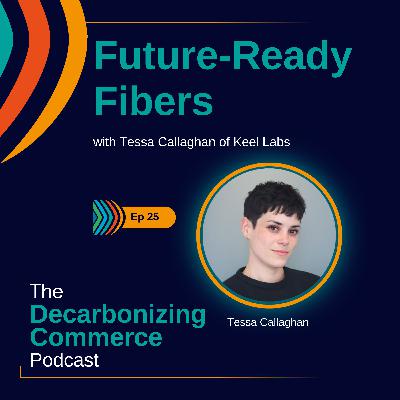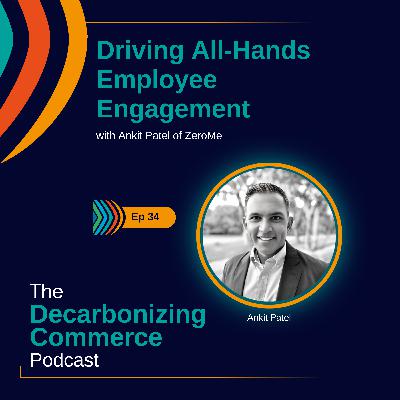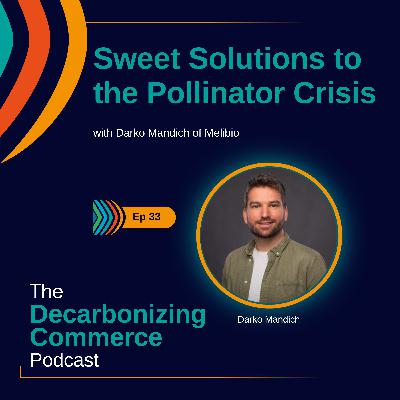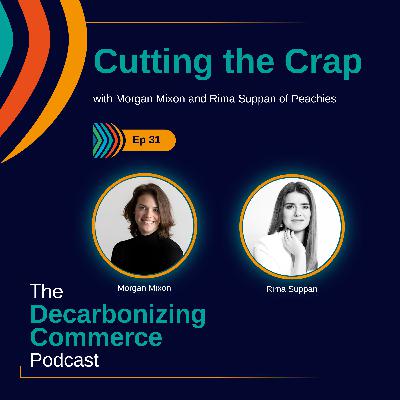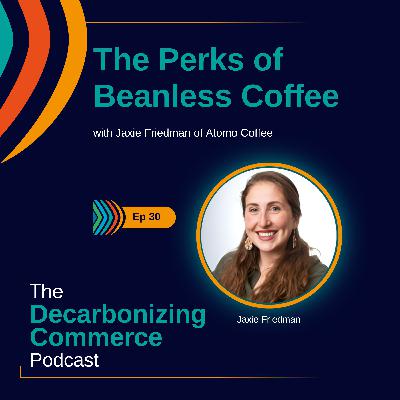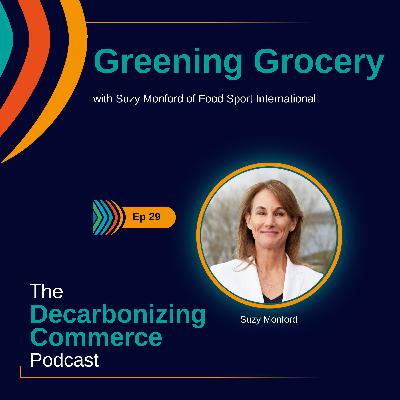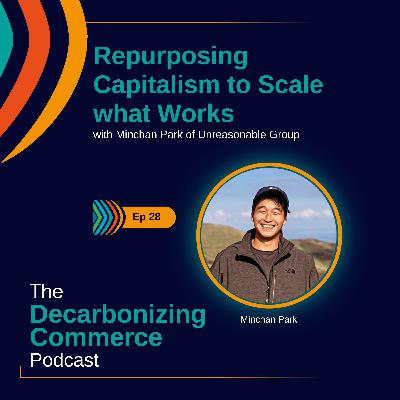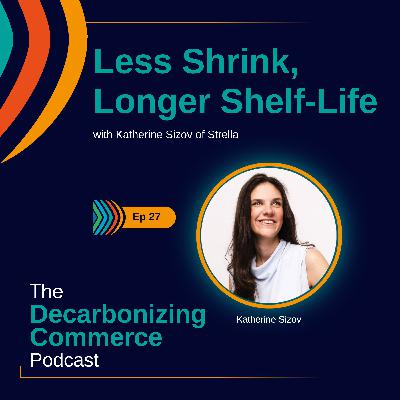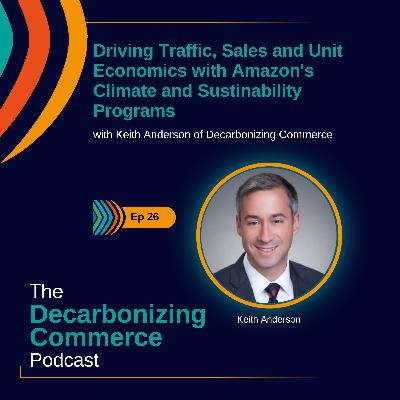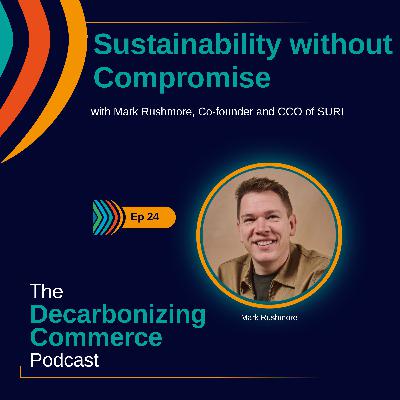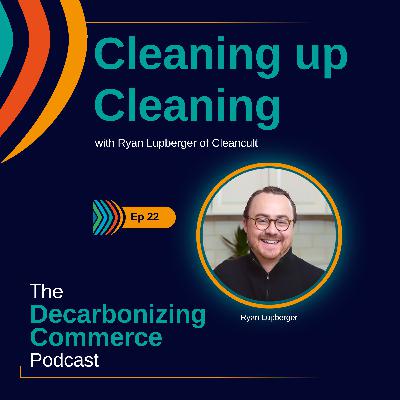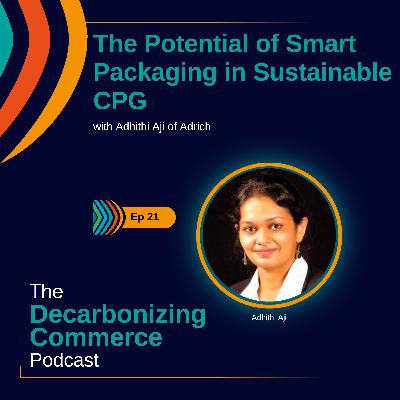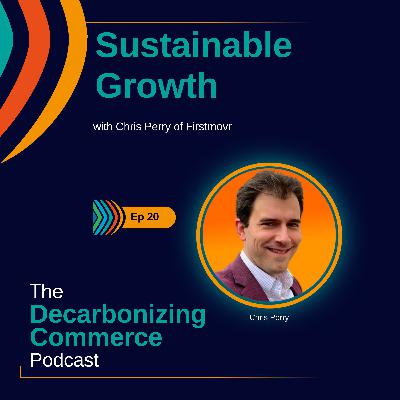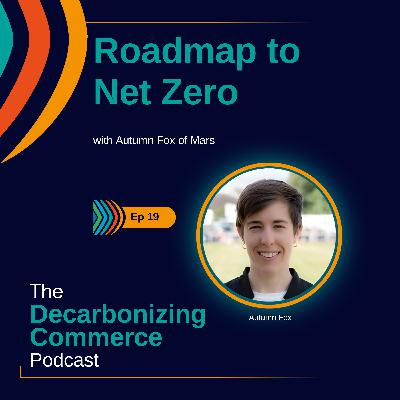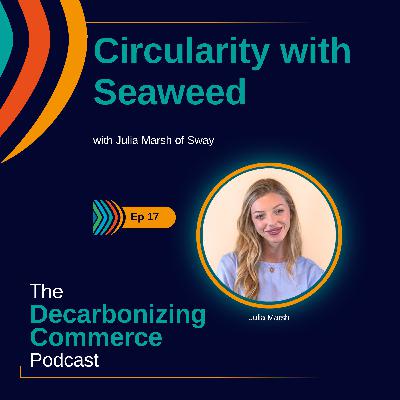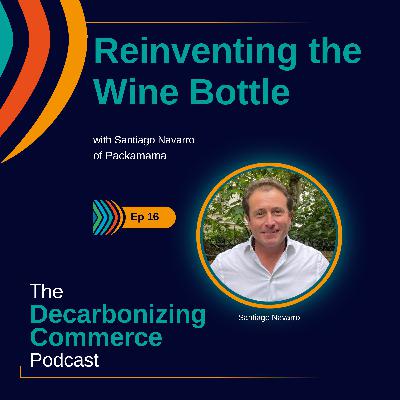Future-Ready Fibers with Tessa Callaghan of Keel Labs
Update: 2024-04-25
Description
This episode features Tessa Callaghan, co-founder and CEO of Keel Labs, which produces a fiber from seaweed material being used in the fashion and other industries.
In addition to sharing her and her co-founder's journey to starting Keel Labs, Tessa covers what they experienced firsthand as designers in the fashion industry, some of the ways that the material they're producing compares and contrasts both to conventional synthetics and natural fibers, and where she sees the industry headed.
In addition to sharing her and her co-founder's journey to starting Keel Labs, Tessa covers what they experienced firsthand as designers in the fashion industry, some of the ways that the material they're producing compares and contrasts both to conventional synthetics and natural fibers, and where she sees the industry headed.
Learn more about Tessa Callaghan:
To listen to the full episode join our Plus or Pro memberships at decarbonize.co:
If you enjoyed this episode then please:
- Follow, rate, and review on Apple Podcasts
- Follow and rate on Spotify
Learn more about Decarbonizing Commerce at decarbonize.co
TRANSCRIPT BELOW:
Keith Anderson: Welcome to Decarbonizing Commerce, where we explore what's new, interesting, and actionable at the intersection of climate innovation and commerce. I'm your host, Keith Anderson, and together we'll meet entrepreneurs and innovators reinventing retail, e-commerce, and consumer products through the lenses of low carbon and commercial viability.
TRANSCRIPT BELOW:
Keith Anderson: Welcome to Decarbonizing Commerce, where we explore what's new, interesting, and actionable at the intersection of climate innovation and commerce. I'm your host, Keith Anderson, and together we'll meet entrepreneurs and innovators reinventing retail, e-commerce, and consumer products through the lenses of low carbon and commercial viability.
Welcome to another episode of the Decarbonizing Commerce Podcast. I'm your host, Keith Anderson, and our guest this week is Tessa Callaghan, co-founder and CEO of Keel Labs, which is producing a fabric from seaweed material that's being used in the fashion and other industries. And I continue to be really interested in emerging ingredients and materials,
not only for CPG products, but consumer products, including apparel and, you know, among the most interesting materials, seaweed is really emerging as, an interesting and high potential material for a lot of reasons, which you'll hear more about as you get to know Tessa today, and you may have heard in episode 17 with Julia Marsh of Sway.
So, you'll learn a lot about she and her co-founder's journey to starting Keel Labs, what they experienced firsthand as designers in the fashion industry, some of the environmental impacts of the materials that they had available as options and some of the limitations and shortcomings with those same materials, some of the ways that the material that they're producing compares and contrasts both to synthetics and natural fibers, and where she sees the industry headed over the next few years.
So, I learned a ton from Tessa, and I'm excited for you to meet Tessa Callaghan, co-founder and CEO of Keel Labs.
Tessa, thanks so much for joining us for the Decarbonizing Commerce podcast.
Tessa Callaghan: Yeah, thank you so much for having me.
Keith Anderson: Well, for those that may not be familiar, why don't we start with, you telling us what Keel Labs is and what it does and how you and your team came to start it.
Tessa Callaghan: Yeah, of course. So, at Keel Labs, our whole mission is to take ocean derived resources, and use them to solve some of the world's most challenging and pressing crises. Our flagship product is called Kelsun, and this is a fiber that is derived from Seaweeds, and is applicable in textile applications in a wide range from clothes to interiors to basically anywhere that you see fibers used.
And you know, really the core reason of starting this initiative and founding Keel Labs was around the need to address the waste, the pollution, the negative impacts that the fashion industry in particular has on our planet, and that have yet to be solved in its entirety. And so, my background, along with my co-founder's, was in fashion and in textiles and we're working in the industry and really experiencing firsthand the lack of options that we are being provided with and seeing some of the bottlenecks that were, you know, going to be occurring both as, you know, agricultural yields are decreasing and as the demand for natural fibers was increasing. And so it was quite a circuitous route for us, not necessarily, you know, I think, the intention that either of us had when we started in the fashion industry.
But push really came to shove, and we saw that there was a really big opportunity to harness the massive potential that the ocean, and primarily seaweeds, have to help revolutionize these, you know, really resource intensive industries.
Keith Anderson: The ocean is so hot right now, and so I want to come, I want to come back to that.
Tessa Callaghan: Literally and figuratively.
Keith Anderson: I know. I was very excited to drop that one when I spoke with you.
Tessa Callaghan: Regardless.
Keith Anderson: But, I'd love to spend a couple minutes, going deeper on sort of the two drivers that I heard you describe there. One of which was the environmental impact of fibers in the textile industry.
You know, many of our listeners come from that side of the industry, but many are also in CPG and grocery. And, I know they all wear clothes, but they're not as close to the business of apparel. And then the second thing I heard that I actually wasn't expecting, but you mentioned was the demand for natural fibers and some of the supply constraints or challenges with diminishing yields, which, you know, we talk about that more and more often as a driver of shifting strategy across retail and consumer products.
So much of the focus is on your first point around minimizing environmental impact, but increasingly what seems to be motivating companies to make changes even sooner is adapting to supply chain challenges and constraints by finding more resilient materials. So maybe starting with the environmental impact, can you share more about what you learned about the environmental impact of what your options were when you got into the industry?
Tessa Callaghan: Yeah, that's a really great question. And I think, you know, really was one of the core catalysts when it came to our analysis and the reason that we ended up really looking to the ocean as a resource. So one of the primary things that we were seeing is that, shouldn't be a surprise, but, you know, various materials and, you know, industries obviously like to highlight, where they're winning and it's very easy to kind of harp on the singular challenges.
So as an example, you know, polyester synthetics primarily deal with the fact that they're petroleum based and there's microplastic shedding. And that's kind of their core focus. And so when we think about, or when people typically talk about natural materials, it sounds like it's the solution in that, "oh great, it avoids all of those things and it's natural" and that's fantastic, but what's really underneath the surface there is there's mass amounts of water usage, there's mass pesticide fertilizers required, arable land degradation in a lot of cases, and a lot of chemical processing post cultivation. And so when we kind of look at the industry on a holistic level, it's not just carbon emissions and microplastics, it's chemicals, it's land, it's water, and so rather than saying we're just going to be able to compare and say, we're not using microplastics, how do we actually solve the underlying challenges of the industry as a whole?
And I think that that really needs to be not just for us, but on a kind of planetary scale, how we evaluate the benefit and the drawbacks of various innovations.
Keith Anderson: And that explains a lot. What about on the second point, you know, were you finding challenges with, quality, consistency of supply of some of the existing alternatives?
Tessa Callaghan: Yeah. I mean, I think that I guess to their benefit because of, you know, in a lot of cases, hundreds, if not thousands of years of cultivation and industrial know how, less so on the quality side and more so on the understanding that the quantities, are not able to be, or will not be able to continue to be what they once were, or even what they are today.
So there's kind of a combination of factors. One is that due to climate change and soil health and things of that nature, the yields we can see year over year in natural crop cultivations across agricultural systems is in a lot of degrees declining. And on top of that, not only because of certain, you know, policy implementations, and there's a lot of growth there, but also from a consumer demand perspective, and this, you know, knowing shift away from microplastics and fossil fuels.
We know that we don't like those. So there's an increase in demand so the match of what the plan is able to sustain on a land based perspective and what the demand today and, you know, going forward is going to be, are just not equal.
Keith Anderson: Got it. So you did some analysis and it led you to the ocean and specificall
Comments
In Channel

